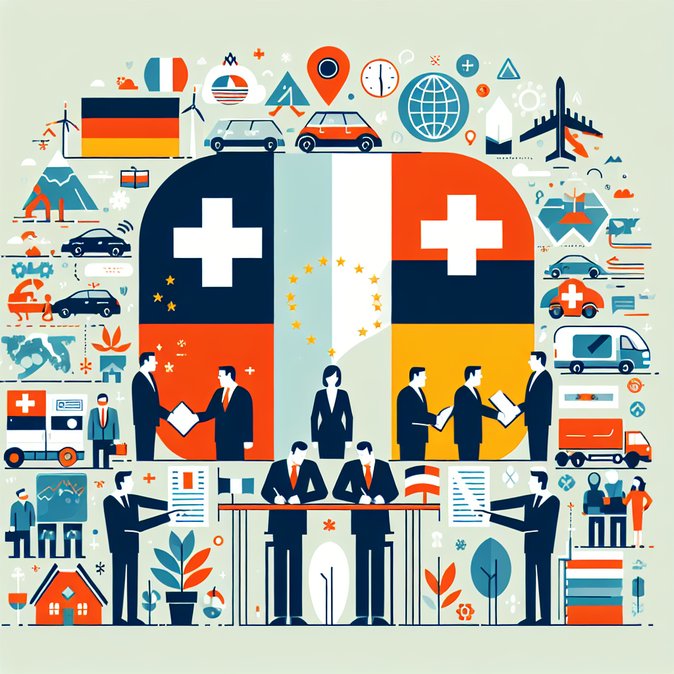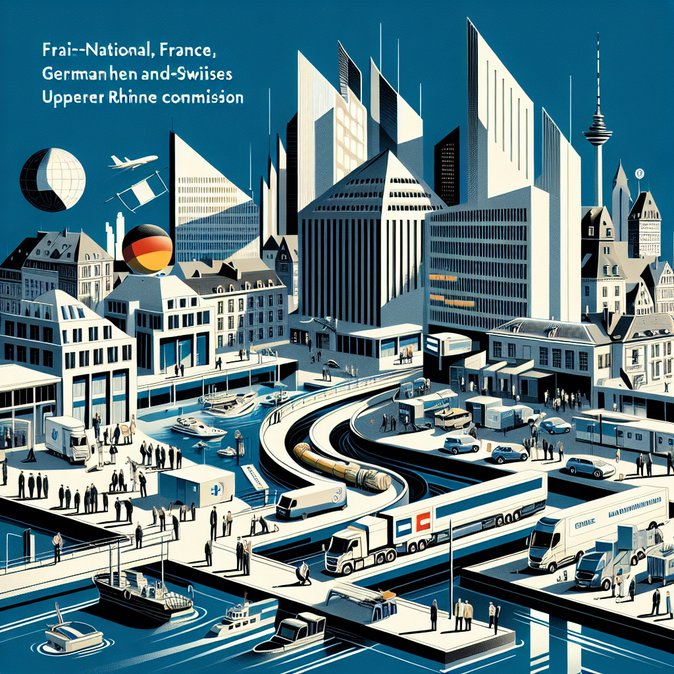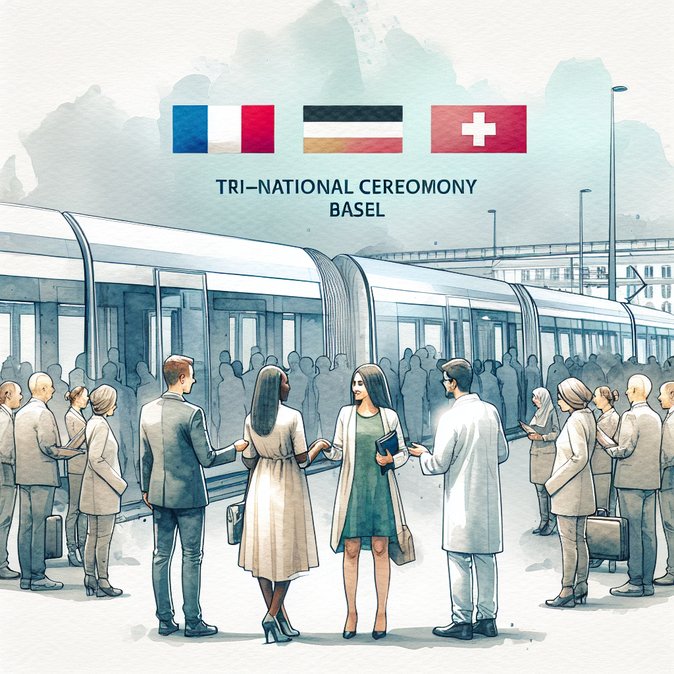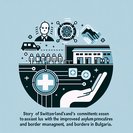
At a ceremony in Basel on 3 November 2025, Swiss State Secretary Alexandre Fasel joined his German and French counterparts to mark 50 years of the Franco-German-Swiss Inter-governmental Commission for the Upper Rhine. In a keynote address, Fasel praised the Commission—created by the 1975 Bonn Agreement and reinforced by the 2000 Basel Agreement—as “a living testimony to what proximity, dialogue and pragmatism can achieve across borders.”
The delegations reviewed half a century of joint problem-solving in one of Europe’s busiest border regions, home to 6 million people who cross national frontiers daily for work, study or leisure. Items on the 2025 agenda ranged from rail and road upgrades that shorten commuter times between Basel, Mulhouse and Freiburg, to environmental coordination on forever chemicals in the Rhine and emerging geothermal projects. Police and civil-protection agencies agreed to deepen data-sharing and emergency-response integration so that incidents on one side of the Rhine no longer create bottlenecks at the other.
![Switzerland, France and Germany reaffirm Upper Rhine cross-border cooperation on 50th anniversary]()
Business groups welcomed the meeting’s joint declaration, noting that 30,000 companies—including several life-science multinationals headquartered in Basel—depend on seamless mobility for 100,000 cross-border workers. Executives said predictable rules and coordinated infrastructure planning help them recruit talent from both EU neighbours while retaining Switzerland’s innovative edge.
The chair of the Inter-governmental Commission now passes from Switzerland to France, which will host the 2026 session. Participants promised to use the hand-over to develop a forward-looking “Upper Rhine 2040” mobility vision that meshes with EU Green Deal targets and Switzerland’s own climate-neutral transport goals. For HR and mobility managers, the take-away is continued political backing for easy cross-border commutes—even as broader EU-Swiss relations remain delicate.
Practical implication: HR teams moving staff into Basel or neighbouring French/German cantons can rely on stable commuter corridors, but should monitor upcoming rail and road works that may temporarily affect travel times in 2026–27.
The delegations reviewed half a century of joint problem-solving in one of Europe’s busiest border regions, home to 6 million people who cross national frontiers daily for work, study or leisure. Items on the 2025 agenda ranged from rail and road upgrades that shorten commuter times between Basel, Mulhouse and Freiburg, to environmental coordination on forever chemicals in the Rhine and emerging geothermal projects. Police and civil-protection agencies agreed to deepen data-sharing and emergency-response integration so that incidents on one side of the Rhine no longer create bottlenecks at the other.

Business groups welcomed the meeting’s joint declaration, noting that 30,000 companies—including several life-science multinationals headquartered in Basel—depend on seamless mobility for 100,000 cross-border workers. Executives said predictable rules and coordinated infrastructure planning help them recruit talent from both EU neighbours while retaining Switzerland’s innovative edge.
The chair of the Inter-governmental Commission now passes from Switzerland to France, which will host the 2026 session. Participants promised to use the hand-over to develop a forward-looking “Upper Rhine 2040” mobility vision that meshes with EU Green Deal targets and Switzerland’s own climate-neutral transport goals. For HR and mobility managers, the take-away is continued political backing for easy cross-border commutes—even as broader EU-Swiss relations remain delicate.
Practical implication: HR teams moving staff into Basel or neighbouring French/German cantons can rely on stable commuter corridors, but should monitor upcoming rail and road works that may temporarily affect travel times in 2026–27.











